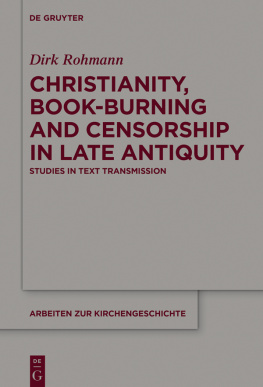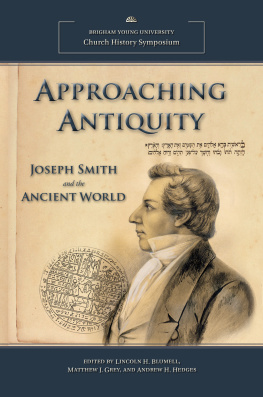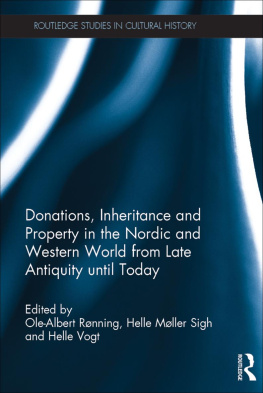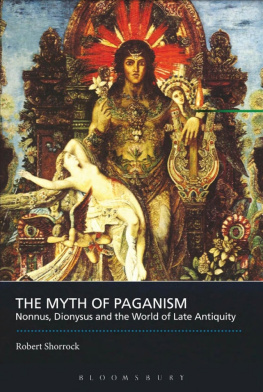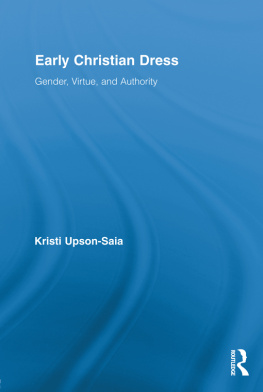Guide

Dirk Rohmann
Christianity, Book-Burning and Censorship in Late Antiquity
Arbeiten zur Kirchengeschichte

Founded by
Karl Holl and Hans Lietzmann
Edited by
Christian Albrecht and Christoph Markschies
Volume 135

ISBN 978-3-11-048445-8
e-ISBN (PDF) 978-3-11-048607-0
e-ISBN (EPUB) 978-3-11-048555-4
ISSN 1861-5996
Library of Congress Cataloging-in-Publication Data
A CIP catalog record for this book has been applied for at the Library of Congress.
Bibliographic information published by the Deutsche Nationalbibliothek
The Deutsche Nationalbibliothek lists this publication in the Deutsche Nationalbibliografie; detailed bibliographic data are available on the Internet at http://dnb.dnb.de.
2016 Walter de Gruyter GmbH, Berlin/Boston
www.degruyter.com
Preface
I have been interested in the impact of Christianity on the transmission of ancient texts ever since I studied classical literature and history. During my graduate studies in Tbingen, I became interested in Christian authors and religious studies. Discussions and several readers have helped to enhance this book. I am aware that a project like this will always leave some questions unresolved, and the specialist reader may find that I have not included in the final version every possible study pertinent to each aspect of this book.
I am grateful to the Alexander von Humboldt Foundation for a generous research grant that allowed me to do research for this book at the University of Colorado at Boulder and later at the University of Bonn. I would like to thank Noel Lenski, who made my stay in Boulder convenient and productive. I have been able to discuss this work with various scholars, of whom I would like to mention James Corke-Webster, Aaron Jackson, Melissa Markauskas, Hannah Probert, Konrad Vssing and Jamie Wood, and to present preliminary results internationally at various workshops and conferences.
Dirk Rohmann
Introduction
The modern book has its roots in Late Antiquity. In the ancient world texts were normally written on rolls, which were made predominantly out of papyrus. Comparatively, the codex-book embodies a form much closer to todays books. Codices were bound books that allow the opening of two pages at a time. While paper as we know it was unknown in Antiquity, ancient codices were mostly made out of parchment. Parchment codices became the predominant form of books from Late Antiquity (c. 300 700) to the Middle Ages. Both forms were used to present and preserve information, but the durability of the materials used required them to be copied, leading to accidental and deliberate redactions, misinterpretations and mistakes. Because of their literal, symbolic and cultural power, and because they were often used to transmit religious doctrine, magic and arcane rites and narratives, and cultural information, books in this period were emblematic sites of contention between competing ideologies and cultural discourses. In this context, books could get lost, they could be censored and banned, and they could also be burnt or destroyed.
As a cultural practice, book-burning was known and performed throughout Antiquity. While other methods of destruction did exist, such as by throwing in water, book-burning was the most effective method of obliterating the writing that the book contained. It also served the purpose of ritualized purification when applied to books containing content classed as dangerous or seditious. This book considers and examines book-burning and censorship of books in Late Antiquity, arguing that the demonisation of books contrary to the Christian world view had a negative impact on the transmission of texts between Antiquity and the Middle Ages.
The assumption that book-burning was seen as a means of purification needs some clarification. Christianity had its own concepts of purification. The Bible, particularly the New Testament, is full of images emphasising the purifying force of fire; God and the faith are portrayed as fire, destroying the enemies of faith and testing the true faith as if fire tests gold and silver, and the fear of hellfire justifies any loss or drastic measure in this world. This shows that the idea of true faith burning and purifying false interpretations was close to the actual act of refuting and literally destroying heretical works, while the act of refutation itself helped to shape orthodoxy. In other words, there is no need for the refuted material to survive.
This spiritual value of ancient writings stands alongside their material worth. In Late Antiquity expensive codex-books became the norm, but ancient papyri-books were probably much cheaper, given the availability of the material as papyrus was a plant that grew abundantly in Egypt. In classical Athens, books written by the philosopher Anaxagoras were reportedly sold for the market-price of one drachma, perhaps comparable to the daily wage of a skilled worker. ) that one owner of magic books paid an unspecified, but reportedly high price to acquire these. The burning of magic books may well have included a certain amount of social envy as the individuals who burnt these books would often have been unable to afford books at this price.
Censorship may be defined as the suppression of texts (entire books or single passages) as objectionable, often on ideological (including religious) grounds, applied through an authoritative agent. Censorship can be applied, for example, through legislation to curb the circulation of any writings, the wider ramifications of this being the active refusal to copy texts. Because of its association with totalitarian states in the twentieth century (most notably the Nazi book-burning of 1933) and because of a variety of fictional works, contemporary readers often have an emotive response to the idea and practice of book-burning and censorship. Yet, the concept of censorship was already known to Plato, While book-burning and censorship are today often regarded as government-sanctioned acts, we will see a variety of different incidents. Besides public acts of book-burning, often performed by secular or ecclesiastical authorities, books could privately be burnt both in Antiquity and in our own recent past. This means that there are a variety of motives to destroy a book. Examples may include waste management; destruction of a manuscript by the author, who feels his contribution to be inadequate; voluntary destruction by the owner who dislikes the content of a book (because of its poor quality or out of ideological or religious reasons); burning a holy book to attract publicity; spontaneous acts of book-burning caused by religious or moral offence; identity-forming, ceremonial acts of vandalism, if, for example, supporters of a football club burn items related to a rival club.
I shall consider book-burning in every possible form, distinguishing between different motivations to burn books. I shall also consider censorship not so much in a modern understanding (government-sanctioned oppression of writings) as within the possibilities of an ancient state: as orders or recommendations to ban books or as active refusal to copy books. Both strands of investigation and analysis will be pursued in order to answer the question of whether or not book-burning, the banning of books, the active refusal to copy texts, and the deliberate neglect of books to promote their disintegration inspired by religious reservations affected the survival of pagan literatures, particularly those concerned with the pre-Christian philosophical tradition.

